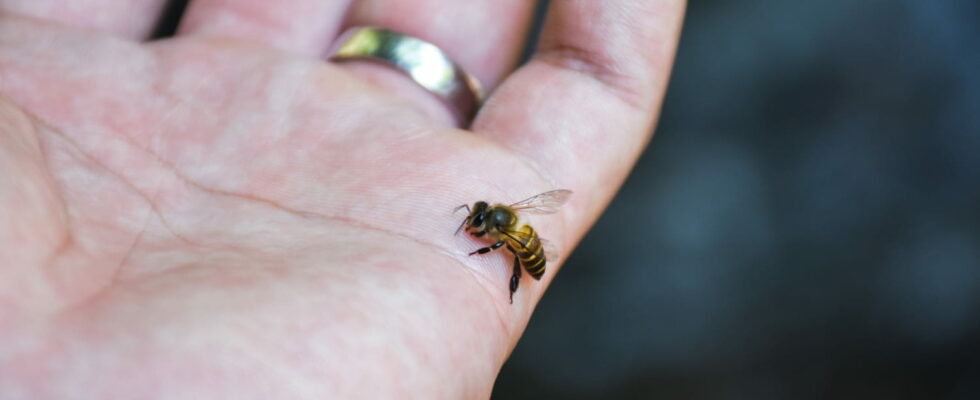He nearly lost his life after being stung by a wasp.
“A wasp sting, and this is the result“. Friday July 19, 2024, Gérard Tenoux, mayor of the commune of Valdoule in the Hautes-Alpes, wanted to tell his story which could have been fatal to him, in the hope that it would be read, shared and that it could prevent other people from suffering this misfortune.
In a long post published on Facebook, the local elected official recounts having been stung by a wasp (he does not specify on which part of the body) while he was 1 km from his home. The first symptoms are “very violent” : generalized overheating of the body and a racing heart, suggestive of a serious allergic reaction”To reduce anaphylactic shock“, he decides to take some pills, while waiting to return home by car. When he gets home, he manages to give himself a first injection (with a self-injectable adrenaline pen, editor’s note). The second injection is impossible because he is in so much pain.
He then asked his wife to call for help, before losing consciousness just 5 minutes after being bitten.30 minutes lifeless on the ground, my body waging a fierce fight for life simply against this violent allergic reaction.” he said in his testimony . Help arrives: first a doctor from Valdoulde, then the firefighters, the emergency doctor from the area and the SAMU team by helicopter.After 1h30 of intensive care on site, accompanying me as best they could, they headed to the emergency room in Gap where I was treated remarkably well.“, he continues. Today, Gérard Tenoux is doing better and must rest for a few days at home to fully recover from this sad incident.
A single sting can be fatal
Allergic reactions of this type are rare but they do exist. Without the immediate call to 15 and the practice of good care, the man could have succumbed. Each year in France, around fifteen people die from bee, wasp or hornet stings. A wasp sting can happen quickly, especially in summer when you spend a lot of time outdoors. Mostly, it causes a local reaction that rarely requires the intervention of a doctor.
First aid to give in the event of a bite:
- Disinfect thoroughly with soap and water or use a venom extractor (unlike bees which leave their stinger and venom gland on the skin, wasps sting without leaving a stinger)
- Then apply an antiseptic solution
- If the pain is severe, take an oral pain reliever.
If the local reaction (swelling, pain, redness) worsens in the days following the sting or if general signs of infection such as fever and/or chills develop after the sting (an infection may develop at the sting site), consult a doctor. In the case of multiple stings (more than 20 in adults, 4 or 5 in children), there may be a toxic reaction. You should go to hospital. The same applies in the case of a sting in the mouth or throat: the swelling can be rapid and significant and cause breathing difficulties. Give an ice cube to suck, consult a doctor immediately or go to a hospital emergency room.
A wasp sting can lead to potentially fatal anaphylactic shock. The warning symptoms are cutaneous (hives, redness, significant swelling, etc.), respiratory (edema, feeling of suffocation), digestive (nausea, vomiting, etc.) and in the most serious cases cardiac (drop in blood pressure, etc.) and neurological (dizziness, loss of consciousness). Call the emergency services by dialing 15 or 112. In the meantime, lay the victim down and raise their legs.
